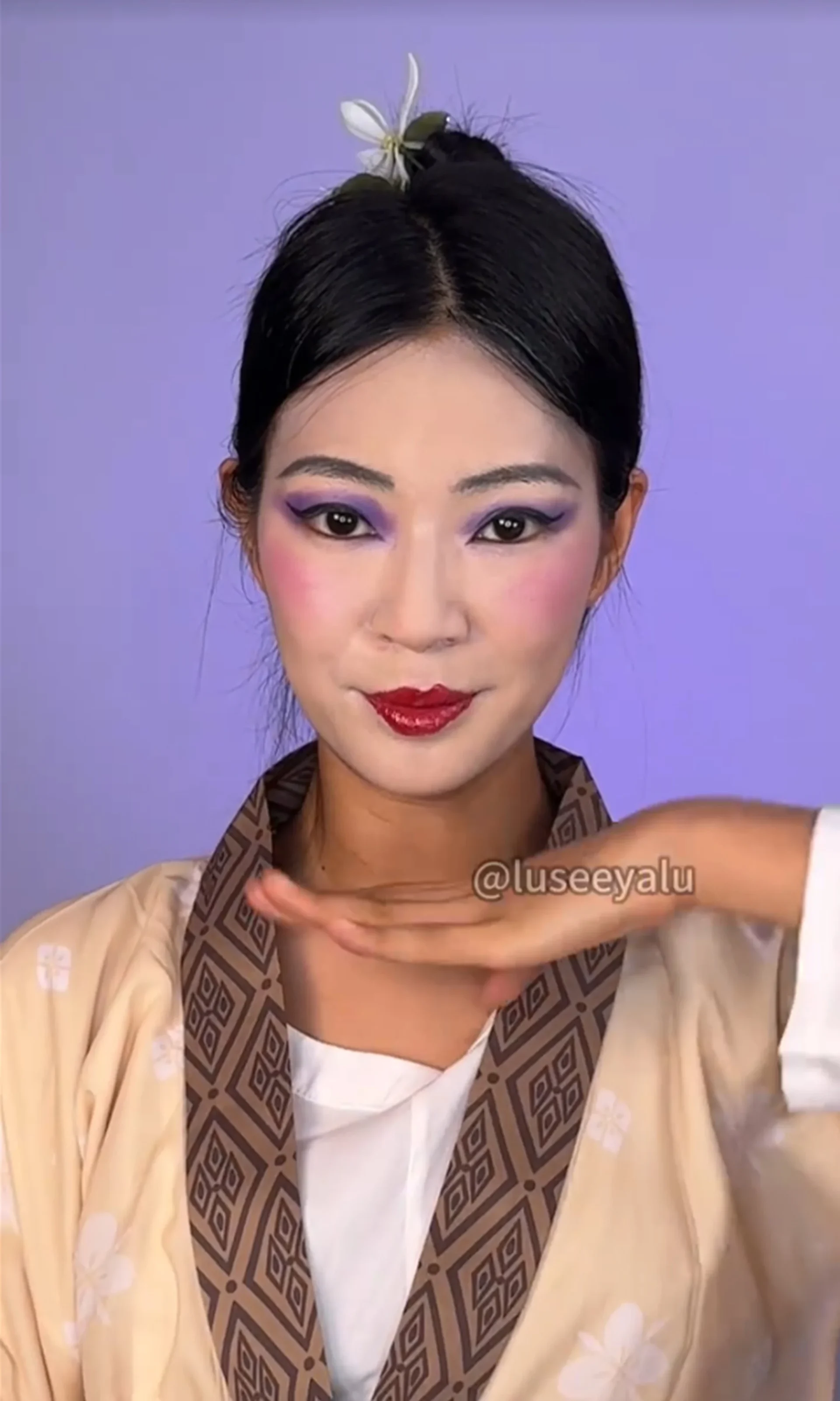A US-based Chinese TikTok influencer, Lucia Liu, has come under fire in mainland China for allegedly “reinforcing Asian stereotypes” after posting a video showcasing costume changes that incorporate traditional Chinese cultural dress and makeup. The video, originally posted on TikTok on May 4, has garnered significant attention, amassing 16.3 million views and 2.2 million likes.
In the video, Liu transitions through various Chinese cultural outfits, including a cheongsam, an armoured chained dress, Peking opera makeup, and even an outfit inspired by Chun-Li from the Japanese video game Street Fighter. She uses an Asian foldable hand fan to facilitate these transitions. The video was an adaptation of the popular “Asoka makeup” trend on TikTok, where influencers created looks inspired by traditional Indian weddings and danced to a tune from the 2001 Bollywood film Asoka.
TikTok users largely praised Liu’s creativity. Comments included, “The Asoka trend but with different cultures. Love to see it!” and “This one is way better and more unique.” However, when Liu posted the same video on Xiaohongshu, China’s equivalent to Instagram, the reception was starkly different.
Mainland Chinese users criticized Liu for not selecting authentic Chinese outfits and for presenting what they perceived as a Westernized portrayal of Chinese culture. One user commented, “This looks like American-styled Chinese costumes. If you had chosen Zhang Ziyi’s look from Crouching Tiger, Hidden Dragon, no one would have thought it was a stereotype.” Another remarked, “None of the makeup changes truly reflect traditional Chinese aesthetics.”
Despite the criticism, some users defended Liu. A Xiaohongshu user from Canada commented, “What’s wrong with an American aesthetic? It does showcase Chinese culture, and it looks good too.”
This incident underscores ongoing debates regarding the representation of Asian cultures in global media. The criticism directed at Liu is reminiscent of past controversies. In 2020, the Western makeup trend of “fox eyes,” which involved altering the eye shape to appear more elongated, was condemned as cultural appropriation and for perpetuating racist stereotypes. In 2021, French fashion brand Dior faced accusations of racial discrimination over a poster depicting a Chinese model with freckled dark skin and squinted eyes, which some perceived as an attempt to “uglify” Chinese people.
The backlash against Liu highlights the sensitivity surrounding cultural representation and the challenges influencers face when navigating the fine line between cultural appreciation and appropriation.
READ MORE:
